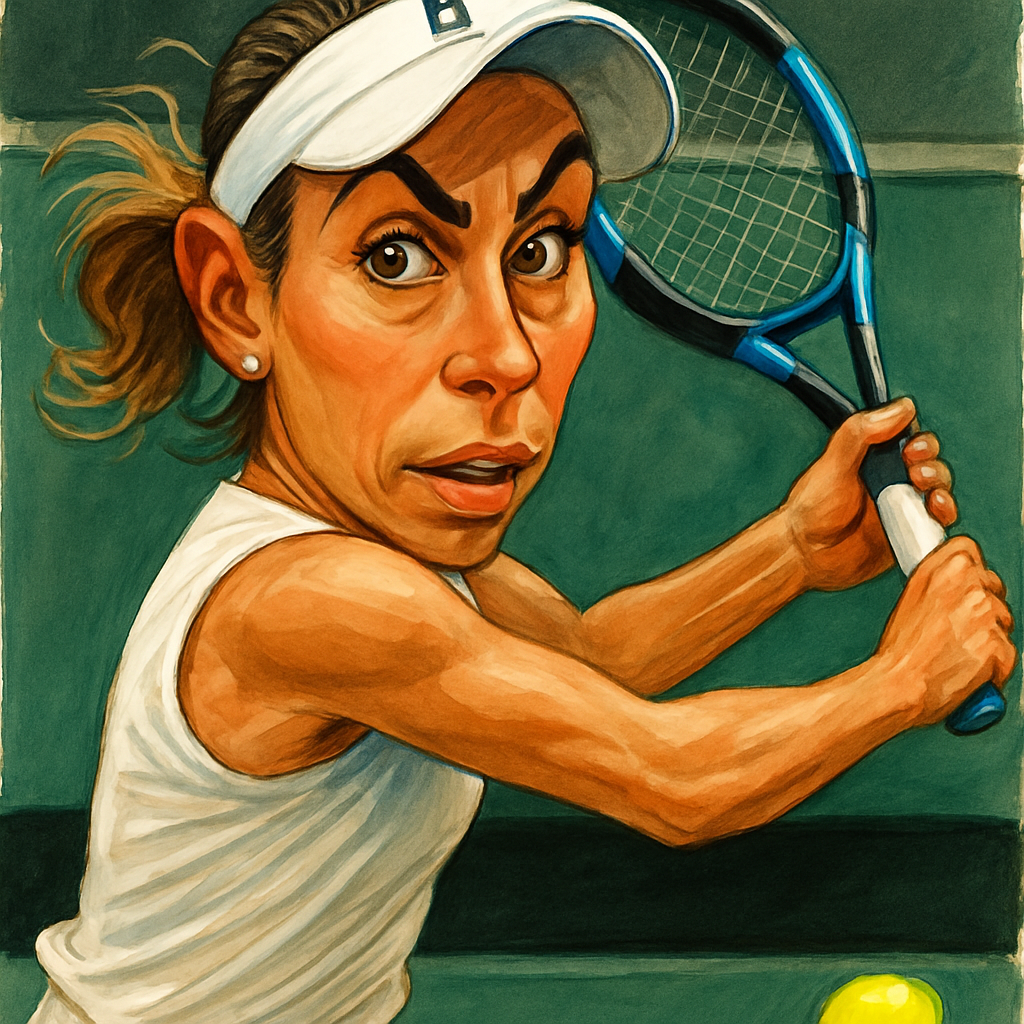LONDON — Kazakhstani tennis star Yulia Putintseva revealed unsettling details about a security incident during her first-round match at Wimbledon, where she requested the removal of a spectator for what she described as "political shouting" that disrupted play and caused her distress.
Putintseva's Concerns During the Match
Putintseva, known for her fiery on-court demeanor, faced a straight-sets defeat against Germany’s Tamara Korpatsch. However, the match was overshadowed by an unusual interruption when the 29-year-old approached the umpire to report a spectator’s disruptive behavior. "There was a man shouting political things, and it was very distracting," she later explained in her post-match press conference.
The incident occurred during the second set, with Putintseva trailing. She described the spectator’s remarks as "clearly aimed at me and related to current political tensions." While she did not specify the exact nature of the comments, sources close to the player suggested they may have referenced geopolitical issues involving Russia and Kazakhstan.
Security Response and Tournament Protocol
Wimbledon officials swiftly acted on Putintseva’s complaint, removing the individual in question. A tournament spokesperson confirmed: "We take player welfare seriously and will always investigate reports of disruptive behavior. Appropriate action was taken in this instance."
Key details about Wimbledon’s security measures include:
- Spectators are prohibited from making political statements or causing disruptions.
- Players can request umpire intervention if they feel unsafe or distracted.
- Security personnel are trained to handle such incidents discreetly to avoid further disruption.
Broader Context of Political Tensions in Tennis
Putintseva’s experience is not isolated. Tennis has seen increasing instances of political tensions spilling into tournaments, particularly since Russia’s invasion of Ukraine in 2022. Players from Russia and Belarus compete as neutrals, but controversies persist.
Last year, Ukraine’s Marta Kostyuk was booed at the French Open for refusing to shake hands with Belarusian opponent Aryna Sabalenka. Kostyuk later stated: "People don’t understand the pain we feel. This is not just a game for us."
Putintseva, who represents Kazakhstan but was born in Moscow, has faced scrutiny over her stance on the war. While she has not publicly condemned Russia, she emphasized: "I just want to play tennis. I shouldn’t have to deal with this kind of pressure on court."
Player Reactions and Support
Several players voiced support for Putintseva’s decision to report the incident. Britain’s Katie Boulter tweeted: "No one should have to tolerate harassment during a match. Well done, Yulia, for speaking up."
However, some critics argued that political expression, even if unwelcome, is part of public events. A fan on social media commented: "If players can make political statements, why can’t spectators?" Wimbledon’s strict decorum policies, however, leave little room for debate.
Conclusion: Balancing Sport and Politics
Putintseva’s ordeal highlights the challenges tournaments face in maintaining a neutral sporting environment amid global tensions. While Wimbledon’s response was praised, the incident raises questions about how far tournaments should go to shield players from external pressures.
As Putintseva reflected: "Tennis is my escape. When politics enters the court, it takes away from what we’re here to do." The tennis world will continue grappling with these issues as long as geopolitical conflicts persist.

